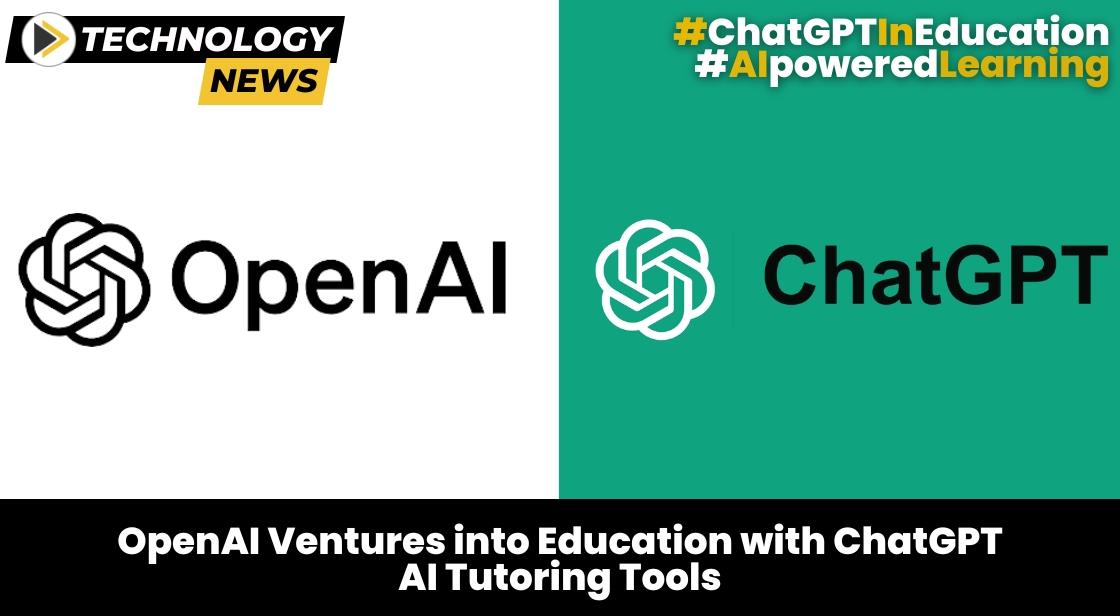OpenAI Embraces ChatGPT's Potential for Education: Exploring AI-Powered Tutoring Tools

News Synopsis
OpenAI is channeling its ChatGPT technology into educational avenues, responding to concerns over potential misuse. Initially seen as a tool that could promote academic dishonesty, ChatGPT is now being reconsidered for its role in revolutionizing education.
Brad Lightcap, OpenAI's chief operating officer, unveiled plans for a dedicated team focused on leveraging ChatGPT for educational purposes at the INSEAD Americas Conference in San Francisco.
The Evolution of ChatGPT in Education
Originally met with apprehension from educators fearing its potential for aiding cheating and plagiarism, ChatGPT is now being viewed more positively by teachers. A media agency quoted Lightcap affirming the shift in educators' perceptions: "(Now) most teachers are trying to figure out ways to incorporate (ChatGPT) into the curriculum and into the way they teach."
OpenAI's Initiatives in Education
OpenAI is stepping up its efforts to adapt ChatGPT for classroom applications. The planned team aims to collaborate with educators to explore the technology's potential in education.
OpenAI has already joined forces with educational entities like Khan Academy to develop AI-driven tutoring tools. Moreover, collaborations with Schmidt Futures are underway to support educational initiatives in underserved communities.
ChatGPT's Role in Modern Education
Andrew Mayne, an AI consultant and former OpenAI employee, highlights the multifaceted utility of ChatGPT in education. He emphasizes its potential as a supportive tutor for students, catering to diverse learning styles and aiding educators in crafting engaging and versatile educational content.
Potential Applications of ChatGPT in Education
Andrew Mayne, a former OpenAI employee and current AI consultant, highlights several potential applications of ChatGPT in education. These include:
-
Personalized tutoring: ChatGPT can adapt to individual student needs and learning styles, providing customized support and guidance.
-
Engaging learning materials: ChatGPT can assist in creating interactive and stimulating learning materials, such as stories, games, and simulations.
-
Diverse learning styles: ChatGPT can accommodate different learning styles, catering to both auditory and visual learners.
-
Non-judgmental support: ChatGPT can provide a non-judgmental learning environment, encouraging students to ask questions and engage with the material without fear of making mistakes.
OpenAI's Commitment to Responsible AI Development
OpenAI remains committed to developing and deploying AI technologies in a responsible and ethical manner. The company is actively addressing concerns about potential misuse, such as cheating and plagiarism, by working closely with educators to establish guidelines and best practices for integrating AI tools into the classroom.
Conclusion
ChatGPT's potential to revolutionize education is becoming increasingly evident. OpenAI's dedication to exploring and implementing its educational applications demonstrates the company's commitment to leveraging AI for positive societal impact.
As AI continues to evolve, its ability to enhance teaching and learning is poised to transform the educational landscape.









